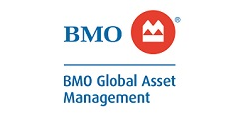The abundance of global geopolitical issues raises questions on how markets and investments will be impacted – delegates speak about the risks they are most concerned with.
Headlines
- The US’ protectionism practices could exacerbate the trade deficit even more
- Wariness of Russia is high, especially as ongoing dialogues have slowed down
- The UK could be losing 6% of GDP over the long-term in the event of a no deal, according to the IMF
- The volatility makes it difficult for investors to make decisions, however markets are already partly pricing in a No Deal Brexit
Key themes
The expert sets the agenda for the discussion:
- Trade war threats clouding the economic outlook
- Brexit and the future of the EU
- Investment implications of the above and coping with a fragile environment
Delegates around the table perceive the largest geopolitical risks now to be trade wars between China and the US, Russia-Europe relations, cyber terrorism, protectionism, dirty play e.g. the murder of Khashoggi in the Saudi consulate in Turkey.
The implications of these risks can include protectionism, technology challenges for governments when fighting cybercrime, and polarisation of jobs in advanced economies.
The topic of conversation moved naturally onto President Trump – his popularity comes from implementing fiscal stimulus policies but when the economic growth slowdowns there will be less tools available for an efficient policy response. The plan to “bloat the US economy to the maximum is not sustainable”.
Trump thinks it’s a zero-sum game, as he argues that past trade deals have hurt the US economy before, and they should be renegotiated or scrapped in favour of agreements that benefit American workers.
However, economists and former US trade officials warn that the US’ absence at the negotiating table means potentially risking missing out on substantial economic benefits and the chance to shape international rules that American companies will be forced to follow.
The expert asserted that the trade deficit in the US is due to the country consuming more products than it produces, not unfair trading policies with other countries.
This cannot be fixed by entering into trade wars as that would simply exacerbate the trade deficit. As an example, in the 1930s, senators imposed the Smoot-Hawley Tariff which raised import duties to protect American businesses and farmers. However, this backfired as it had a negative impact on the US economy – first unemployment increased from 8% to 15% from 1929 to 1931, and consequently the economy shrank by 30%. Many economists believe this worsened the Great Depression with many long term damaging effects.
Another delegate stated that President Xi of China does not want anything short-term – so if Trump does not pick a war now, he will let China run for another ten years.
The discussion on concerns moved on to Putin, with one delegate wondering if Putin will move forces up to the Nordics – in which case Europe will rally and defend them. However there is little chance against reining in Russia unless the USA sides with Europe.
One delegate suggested that it would be beneficial to have an ongoing dialogue with the Russians rather than be in the current situation which is where no one talks to one another, and that can be dangerous.
This makes it difficult for investors to make decisions as the likelihood of volatility remains high. However the expert stated that the markets are already partly pricing in a No Deal Brexit. According to the IMF, the UK will be losing 6% of GDP over the long-term if the UK exits the EU without an agreement.
There are also concerns around how to build a portfolio from scratch for new clients – one of the delegates suggested the need to have a long-term horizon to smooth over the worst days.
When speaking about the impact of Brexit for the EU, the expert stated that the impact will be different for every country – Ireland and the Netherlands are the most exposed to the UK from a trade perspective, while France, Italy, Spain will be less affected. However, the expert questioned how much of the EU’s future is really impacted by Brexit as the UK represents 13% of EU trade of goods and services while gross bilateral capital flows account for about 50% of EU’s GDP, according to the IMF.
Conclusions
A long-term investment horizon can ride over the many geopolitical risks faced by today’s investors, especially as there are many uncertainties and high volatility in the markets. The expert recommended that because geopolitical risks are so unpredictable, investors should hold defensive munitions in case markets repriced aggressively. She believes it is time to gradually de-risk portfolios and increase income buffers to reduce the volatility drags on long-term returns.
Expert: Morgane Delledonne, BMO Global Asset Management



